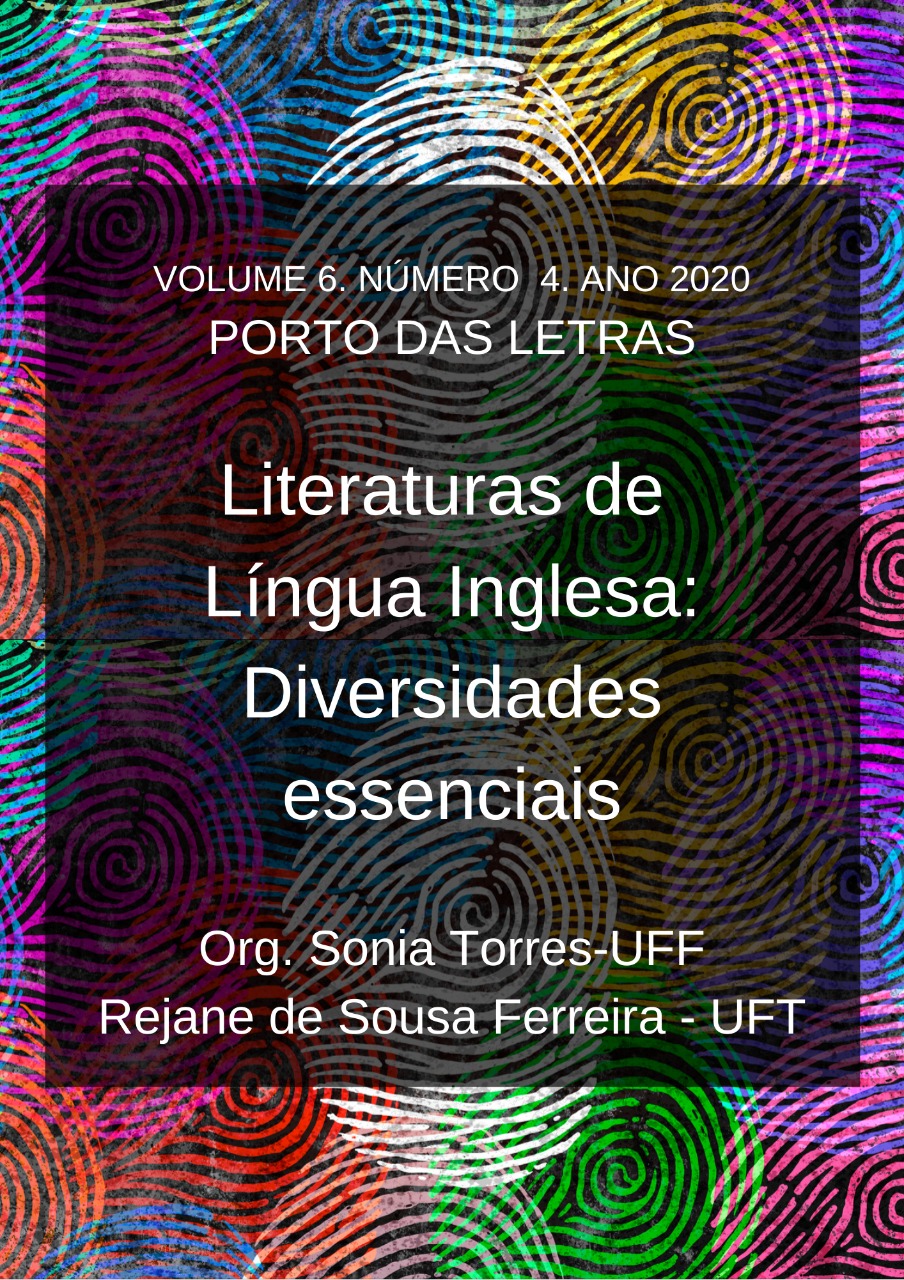Subjetividade verde: ficção e identidade em The overstory
Palavras-chave:
identidade, natureza, ficção, AntropocenoResumo
Este artigo tem como objetivo investigar como o romance The overstory (2018), de Richard Powers, desafia a construção literária tradicional ao configurar em sua narrativa um senso de identidade a entes não-humanos – no caso específico da obra, árvores. O romance consiste de nove personagens em narrativas diversas, que geralmente se entrecruzam, tendo em comum a presença central de pelo menos uma árvore em cada história e a apresentação da complexa relação entre tais personagens e essas entidades vegetais. O presente trabalho será organizado considerando dois focos de análise, a partir do romance: primeiramente, o embaçamento da divisão entre os conceitos de natureza e cultura, tendo como base estudos ambientalistas contemporâneos; e em segundo lugar, a relação entre um discurso econômico desenvolvimentista e o colapso ambiental, especialmente diante da conjuntura da nova época geológica conhecida como Antropoceno. Sendo assim, esse artigo pretende mostrar que The overstory testa os limites da ideia de que apenas seres humanos são produtores de sentido, evidenciando que entes não-humanos também podem ser lidos como detentores de identidade.
Referências
CHAKRABARTY, D. “O clima da história: quatro teses”. In: Sopro, n.91, p.4-22, 2013.
CHAKRABARTY, D. “The Anthropocene and the convergence of histories”. In: HAMILTON, et al. The Anthropocene and the global environmental crisis. New York: Routledge, 2015.
CRUTZEN, P. “Geology of mankind”. In: Nature, n.415, p.23, 2002.
CRUTZEN, P & STOERMER, E. “The Anthropocene”. In: IGBP newsletter, n. 41, p.17-18, 2000.
DE GRAAUW, T & FIORE, E. “Green/Environmental humanities”. In: BRAIDOTTI, R & HLAVAJOVA, M. Posthuman glossary. London: Bloomsbury, 2018.
FRESSOZ, J. “Losing the Earth knowingly”. In: HAMILTON, et al. The Anthropocene and the global environmental crisis. New York: Routledge, 2015.
GHOSH, A. The great derangement. London: Penguin, 2016.
HAMILTON, C. et al. “Thinking the Anthropocene”. In: HAMILTON, et al. The Anthropocene and the global environmental crisis. New York: Routledge, 2015.
HERE’S to unsuicide: an interview with Richard Powers. Los Angeles Review of Books. 07 de abril, 2018. Disponível em: <https://lareviewofbooks.org/article/heres-to-unsuicide-an-interview-with-richard-powers/>. Acesso em: 05 de ago. de 2020.
IOVINO, S. “Literature of liberation”. In: BRAIDOTTI, R & HLAVAJOVA, M. Posthuman glossary. London: Bloomsbury, 2018.
KRENAK, A. Ideias para adiar o fim do mundo. São Paulo: Companhia das Letras, 2019.
LATOUR, B. Facing Gaia. Cambridge: Polity Press, 2017.
LATOUR, B. We have never been modern. Cambridge: Harvard University Press, 1993.
MARQUES, L. Capitalismo e colapso ambiental. Campinas: Editora da Unicamp, 2018.
MOORE, J. Capitalism in the web of life. London: Verso, 2015.
POWERS, R. The overstory. New York: W.W. Norton & Company, 2018.
THUNBERG, G. “2019: London – Greta Thunberg wants her future back”. In: Lapham’s quarterly, vol. XII, n.4, p.71-74, 2019.
TORRES, S. “O antropoceno e antropo-cena pós-humana: narrativas de catástrofe e contaminação”. In: Ilha do desterro, v.70, n.2, p.93-105. 2017.
TREXLER, A. & JOHNS-PUTRA, A. “Climate change in literature and literary criticism”. In: Wiley interdisciplinary reviews climate change, v.2, p.185-200. 2011.
WOHLLEBEN, P. The hidden life of trees. Vancouver: Greystone Books, 2016.
YUSSOF, K. A billion black Anthropocenes or none. Minneapolis: The University of Minnesota Press, 2018.
ZIZEK, S. Living in the end times. London: Verso, 2010.
Downloads
Publicado
Como Citar
Edição
Seção
Licença
Os autores concordam com os termos da Declaração de Direito Autoral, que se aplicará a esta submissão caso seja publicada nesta revista (comentários ao editor podem ser incluídos a seguir).

